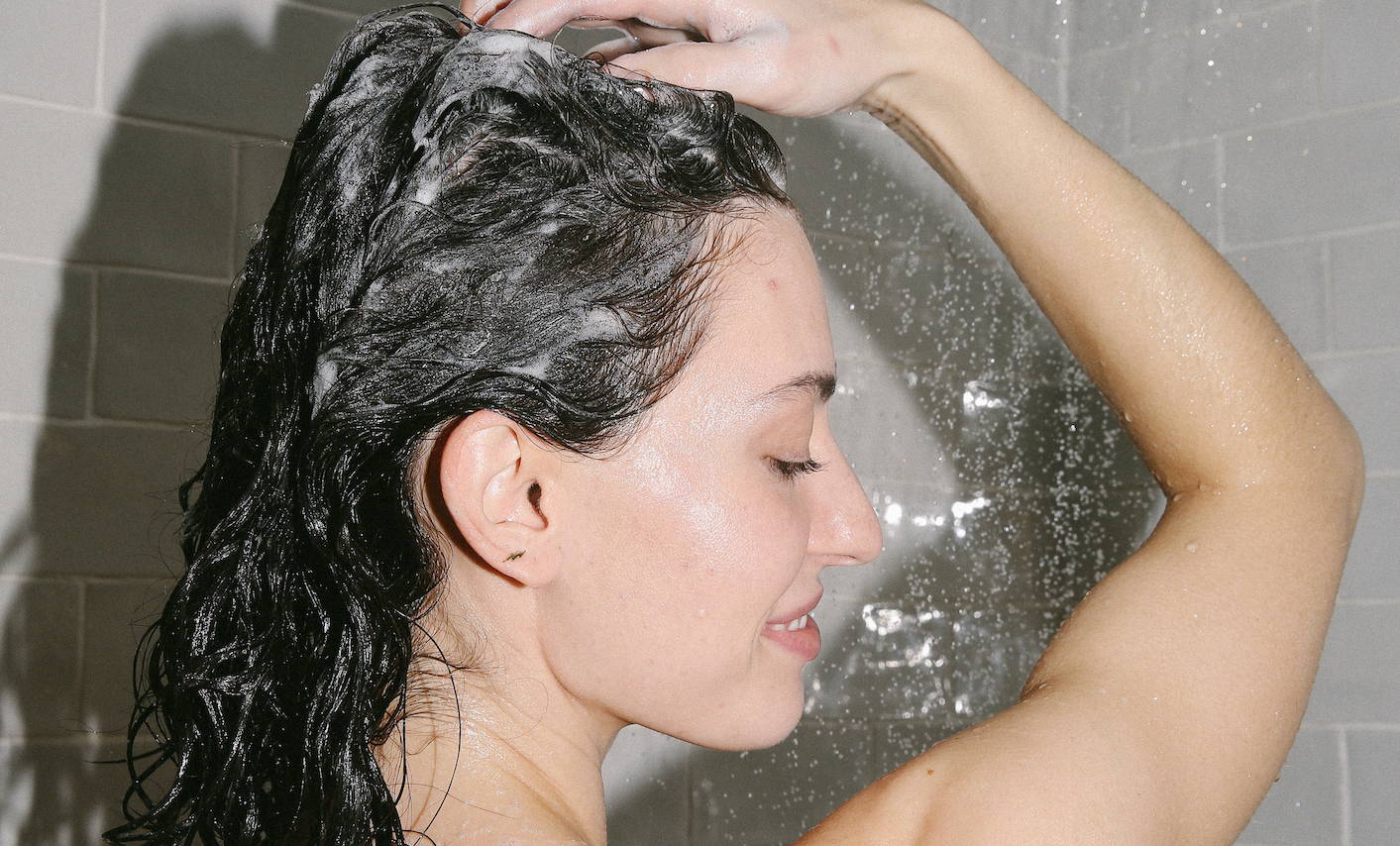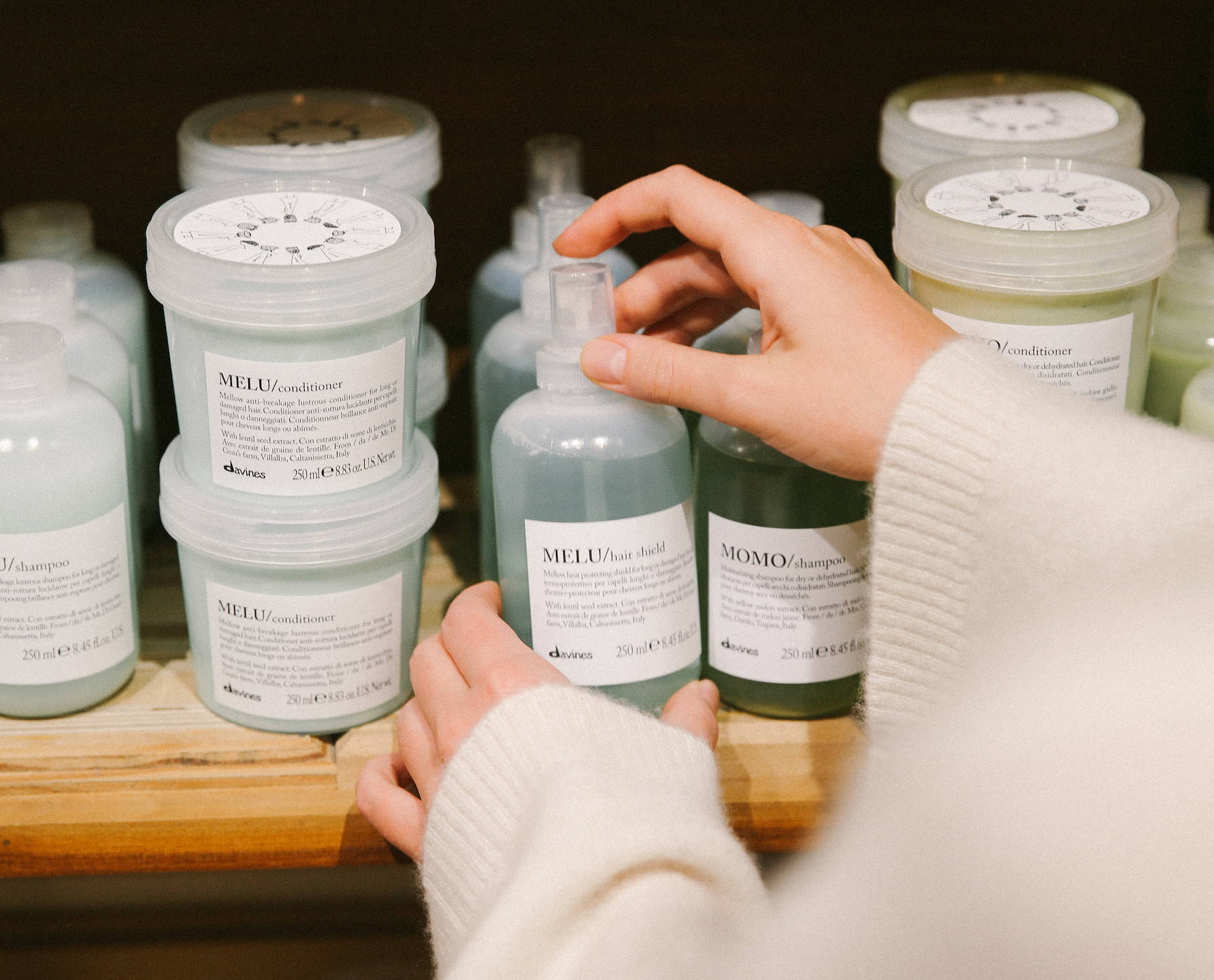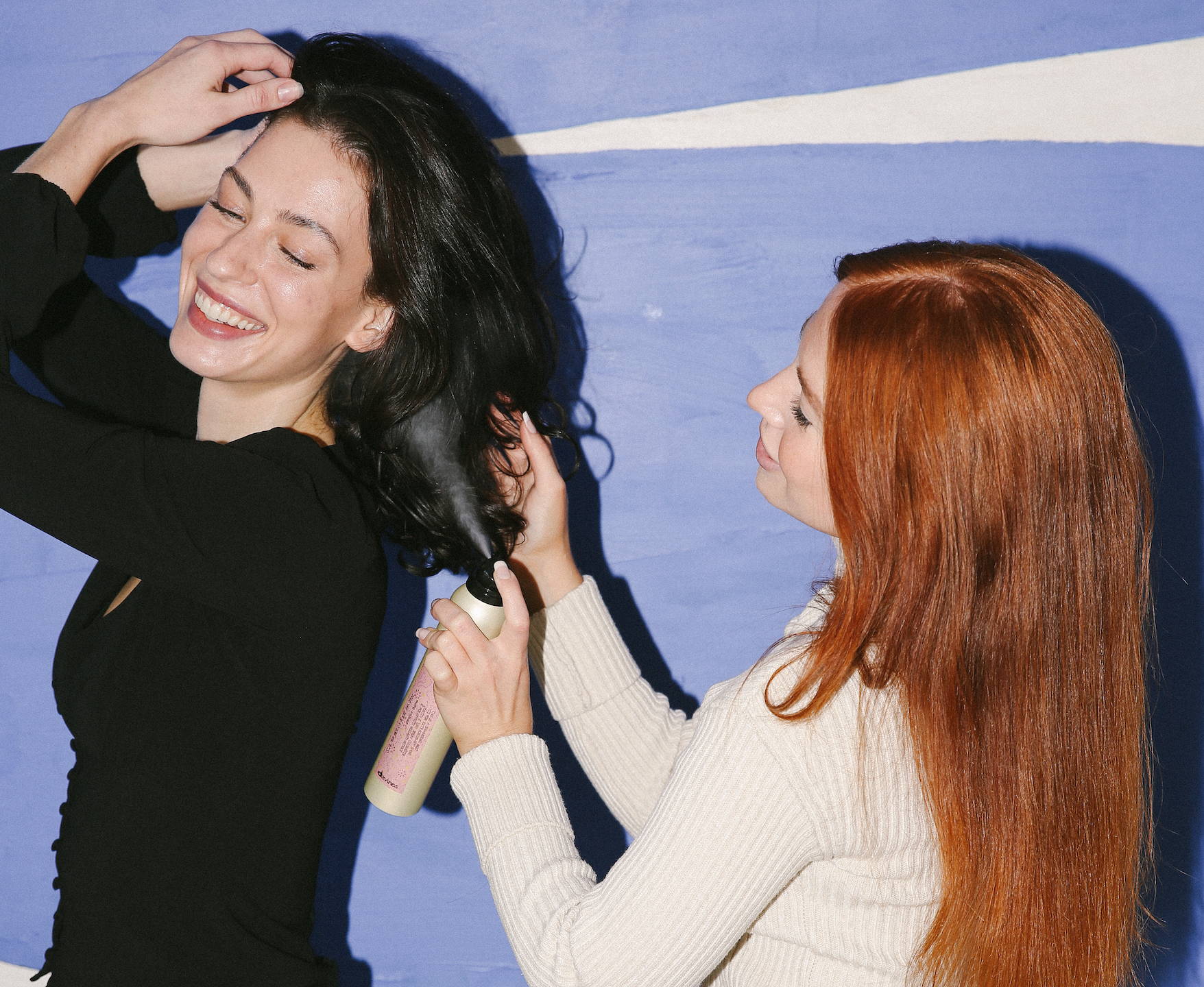Free Carbon Neutral Shipping On Orders $75+, Plus Free Samples!
Buy Now and Pay Later in 4-interest free installments with Klarna
If you’ve ever gotten a haircut that you ultimately regretted, you probably wondered how to speed up the process of hair growth. Along with your genetics, medical conditions, hormonal imbalances, age, hair type, and overall health, all of these factors contribute to how fast hair grows. So whether you're struggling to grow out a short haircut, wondering how fast does facial hair grow, or you just want longer locks, the frustration of trying to grow your hair faster is real — but there are things you can do to optimize your hair’s ability to grow longer and stronger. We’re breaking down everything you need to know about healthy hair growth, including how fast hair grows and tips for growing longer, stronger strands.
So how fast does hair grow? The rate of hair growth varies from person to person, based on their genetics. And each person’s rate of hair growth varies throughout their lifetime: hair grows more quickly during childhood and slows with age. On average hair grows around half an inch a month, but things like damage and breakage can interrupt this process, meaning you're likely to see less growth than this. It can be especially challenging for curly hair types, and those with dry, chemically-treated, or overly heat-styled hair to gain length. So keeping your hair healthy is the most important factor when it comes to growth.
The reality is there's no shortcut to instantly longer hair. But a healthy scalp, a healthy body, and healthy hair habits can lead to stronger, longer strands of hair. From ensuring your hair health from your root to tip; to nourishing it from the inside out and getting on the right hair care routine, these are the hair growth tips you need for healthy hair growth.

Cleansing is the foundation of any good hair care routine. Over-shampooing strips the hair of its natural oils, leading to dry, brittle hair. Depending on your hair type, the number of times you should shampoo your hair per week varies depending on your hair type. Thicker, coarser hair types can get away without washing for a few days, while finer hair types can start to feel greasy after a day. In this case, use dry shampoo to soak up excess grease.
A weekly deep-conditioner is a must for all hair types, but especially for fine, curly, or color-treated hair. As hair grows, the ends go through more stressors, depleting the natural oils that keep hair smooth, as the ends are the oldest and driest part of your strands. They're thinner and brittle, so keeping them conditioned supports them as hair grows.
Hair is especially susceptible to breakage when it's wet. Use a microfiber towel to gently ring out the excess water after washing and conditioning. And if you have any knots post-shower, make sure to use a wide-toothed comb: work from the ends down, then gradually work your way back up.
As the scalp ages, it becomes more fragile and dry so it’s important to maintain the environment for healthy hair growth. Keep the scalp clean with a detoxifying scalp scrub and follow up with a nourishing scalp serum to condition the scalp. This will help to hydrate and enhance overall scalp health.

The most obvious way to support hair growth is to cut down on the hot tools. Blow-dryers and styling irons can damage strands by making them dry and brittle, which can lead to breakage and shorter lengths. If you’re trying to grow your hair, try to avoid heat tools at all costs: but if you absolutely must use heat, always prep first with a heat-protectant.
Getting regular haircuts (even just a light trim!) preserves the length while getting rid of split ends caused by everyday damages, like rough styling or hot tools. The only way to stop a split end from traveling up the hair shaft is to snip it off before it can. Waiting too long in between trims means you'll end up taking off more length in the end. We recommend getting at least three trims a year to promote healthy hair growth.
Foods high in protein as well as vitamins A, C, and E, minerals like zinc and iron, and omega-3 fatty acids all contribute to the health (and growing ability) of your hair. The following foods can help your hair grow faster:
Integrating movement into your lifestyle is an effective way to relieve stress. Set aside 20 minutes a day to exercise and prioritize your self care. And try to live mindfully, paying attention to all of your thoughts and feelings. Not sure where to start? Try mindfulness through meditation.
If your diet isn't supplying you with enough nutrition, supplements can help. There are six key nutrients that contribute to hair growth:

This one may sting a little, but it’s a must. Try to avoid hair dyes, bleach, and chemical treatments when growing out your hair. Chemicals open up the cuticle of the hair strands, causing significant damage, especially on those with darker hair. Plus, hair that’s been chemically treated is more likely to break, meaning more trims and less length for you. If you absolutely need a color session, ask your Davines stylist about how the gentler and protective lightening system The Century of Light can help.
Topical treatments can help people who experience hair loss and may help hair grow. The following topicals promote hair growth and help treat hair loss:
A number of factors can affect hair growth, like age, overall health and factors such as stress and daily habits. And while it’s completely normal to shed anywhere from 50-100 strands of hair a day, in some cases experiencing hair loss or thinning hair it may be the sign of a more serious problem, dermatology-wise or other. Any of the following can be the reason your hair isn’t growing and should be addressed by a doctor or dermatologist immediately:
If you’re wondering how fast hair grows and if you can speed up the process, the answer lies in your genetics, medical conditions, hormonal imbalances, age, hair type, and overall health. So although you can't make your hair grow faster overnight, you can change up your routine and habits to make sure your hair can grow as easily and healthily as possible. Whether you're struggling to grow out a regrettable haircut, or you just want longer locks, there are things you can do to optimize your hair’s ability to grow longer and stronger. The health of your strands starts with your hair care routine and that means using all natural, high quality formulas. All of our products are free of harmful toxins and are made with renewable energy and packaging that minimizes the environmental impact. Our hair care isn’t just good for your hair, it’s good for the planet. And remember, your doctor should be your first stop when trying to make your hair grow, because they can tell you what's really going on inside your body or within your scalp.
by Jaclyn LaBadia, featured contributor
Laisser un commentaire
Les commentaires sont approuvés avant leur publication.